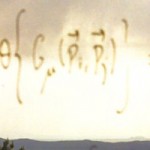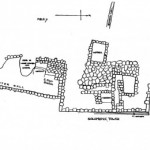 James McGrath has posted a revealing reply to my critique of a single point in his review of Thomas Brodie’s Beyond the Quest for the Historical Jesus: Memoir of a Discovery. Ironically he appears to be unaware that his every point is illustrating the very problem I was trying to address and that is close to the core of the historical Jesus vs Christ myth controversy. (One can hardly call it a two-sided intellectual debate or exchange at this stage.)
James McGrath has posted a revealing reply to my critique of a single point in his review of Thomas Brodie’s Beyond the Quest for the Historical Jesus: Memoir of a Discovery. Ironically he appears to be unaware that his every point is illustrating the very problem I was trying to address and that is close to the core of the historical Jesus vs Christ myth controversy. (One can hardly call it a two-sided intellectual debate or exchange at this stage.)
I concluded with the message that McGrath “brings a hostile intent to every page” he reads by a mythicist.
In my critique of a single point in McGrath’s review of Brodie’s memoir I pointed out that McGrath unfortunately failed to establish his claim with any factual reference to what Brodie had written. Indeed, when one reads the pages that McGrath cited as support for his view, one finds that Brodie’s words belie McGrath’s claims. How is this possible?
McGrath explains
McGrath explains. He draws on his own personal experience and personal weaknesses and reasons that these should guide his and our reading of Brodie’s book. It’s called projection.
McGrath’s explicit reliance upon his own experience while at the same time dismissing and/or ignoring anything Brodie says to the contrary is a classic case of this all too common bit of the human condition. McGrath fails to see that his own experience is irrelevant unless he can directly relate it to the evidence Brodie states — not to “impressions” McGrath gets from putting unspecified inferences he brings together from various pages.
The point I was making in that section of my review was about the fact that Brodie drew a conclusion about whether Jesus was a historical figure even before learning how to do scholarship in the appropriate manner. I can tell you that I myself had all sorts of ideas that I thought were brilliant, publication-worthy insights as an undergraduate. Few withstood the testing to which I subjected them in my ongoing studies.
No, Brodie did not come to the conclusion that Jesus was not historical before “learning how to do scholarship”. McGrath originally said that that was his impression and now he is saying that this was “a fact” he was trying to point out. I have been discussing Brodie’s book in detail and it is clear that McGrath has nothing but his own “impression” — no data — to support what he now says is a “fact” about Brodie.
But it does not stop there. In his original review McGrath invites his readers to share in this projection. He does this by pointing to general motherhood statements that most others can relate to from their student days and invites readers to think of Brodie’s argument through this perspective. Continue reading “How Did McGrath Get Himself Inside Thomas Brodie?”
Like this:
Like Loading...



